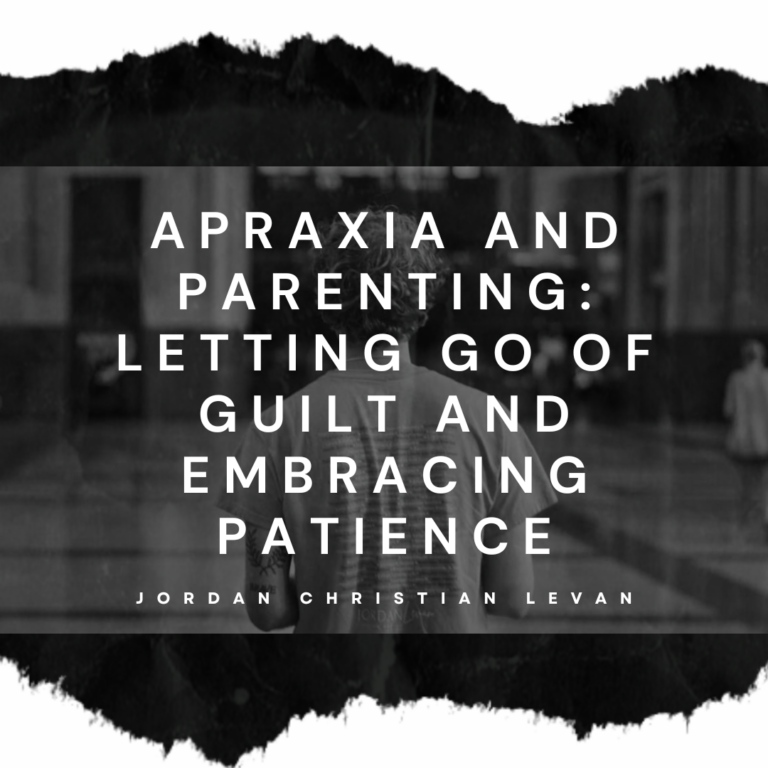
Understanding Parental Guilt in Supporting a Child with Apraxia Of Speech
As someone with Childhood Apraxia of Speech (CAS), I want to address something that weighs heavily on many parents’ hearts: the guilt you feel when you can’t understand your child. I’ve heard from so many parents about the heartbreak they feel when they see their child trying so hard to communicate, but they can’t quite grasp what their child is saying.
Your Child Doesn’t Feel Guilt
Here’s what I want you to know from my perspective as someone who lived through it: your child isn’t feeling guilt. They’re not upset with you or blaming you. From my own experience, I never blamed my mom when she couldn’t understand me. I never thought she wasn’t trying hard enough or didn’t care. The only time I ever felt upset with others was when they lacked patience or understanding. That’s what hurt the most—not the moments of confusion, but the lack of kindness.
The Reality of Parental Guilt with Apraxia Of Speech
The guilt you feel as a parent comes from love—it’s proof of how much you care. But the reality is that your child doesn’t need you to get everything right all the time. They don’t need you to understand every word they say. What they need is your patience, your effort, and your reassurance that they are supported no matter how difficult things get with apraxia of speech.
Remembering the Importance of Patience
Growing up, not everyone in my life was patient or understanding. But I remember the ones who were. I remember those who encouraged me, stayed calm, and made me feel heard, even when my words didn’t come out the way I wanted. I also remember those who weren’t patient—the people who got frustrated or dismissed me. Those moments stick with me, and they hurt far more than being misunderstood.
Supporting Your Child Through Patience and Love
To all the parents out there, my advice is this: it’s not about whether you always understand your child’s speech. It’s about whether they feel understood as a person. Let them see that you’re on their team, that you recognize their effort, and that their struggles don’t make them less worthy. Show them that their value isn’t tied to how clearly they can speak or how quickly they make progress.
Letting Go of Guilt
You’re not going to get everything right, and that’s okay. What matters is that you keep showing up, keep trying, and keep loving them through the hard moments. If you feel guilt, let it go. Your child with apraxia of speech isn’t keeping score. What they’ll remember is the love, patience, and effort you give them every single day.
For more support and resources, visit The Apraxia Foundation today. As a 501(c)(3) nonprofit organization, we are dedicated to helping families, individuals, and communities affected by Childhood Apraxia of Speech (CAS). Together, we can make a difference in the lives of those with apraxia.
– Jordan Christian LeVan
Leave a Reply